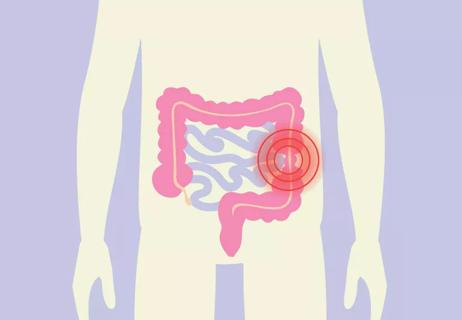A low-FODMAP diet or gluten-free diet could help you manage your symptoms, but only with professional guidance

When you have irritable bowel syndrome (IBS), knowing what to eat — and just as importantly, what not to eat — can be challenging. But the relationship between your gut and certain foods can be incredibly complicated. It’s just not as simple as “eat this, avoid that.”
Advertisement
Cleveland Clinic is a non-profit academic medical center. Advertising on our site helps support our mission. We do not endorse non-Cleveland Clinic products or services. Policy
So, what is the best diet for irritable bowel syndrome? The answer to that question isn’t as cut-and-dry as you might like. And it all depends on ... well, you.
When you have IBS, cutting out your trigger foods is often the ticket to feeling better. But it can be difficult to figure out what those triggers are.
“Not all irritable bowel syndrome patients are the same,” says gastroenterologist Christine Lee, MD. “So, we can’t impose what works for one person onto another person. Everyone who lives with this condition is uniquely different.”
Instead, Dr. Lee says that the best way forward is to figure out your “why” — not just what your triggers are but why they trigger you. And that’s a uniquely personal journey for everyone.
IBS diets aren’t one-size-fits-all, so it’s about figuring out what foods trigger your IBS symptoms. And nailing down the right food choices can play a huge role in minimizing and otherwise managing your symptoms.
Registered dietitian Julia Zumpano, RD, LD, says these foods are common IBS triggers:
Advertisement
Pay attention to how you feel after eating these foods. If they seem to cause symptoms, you’ll know to scale back or cut them out altogether.
Other foods are best to avoid or significantly limit altogether, Zumpano notes. “There are some foods that we know to definitely decrease healthy gut bacteria and promote the growth of bad bacteria,” she explains. “These foods can wreak havoc on the gut, especially in people who have IBS.” These foods include:
This doesn’t mean you can never eat a fast-food burger again or that you have to forever forego cocktails with a friend. But consume them sparingly. “If you indulge in these food groups, do it only on occasion and always in moderation,” Dr. Lee urges.
Though there’s no “IBS diet,” two eating styles are often recommended to determine which foods trigger your symptoms:
But it’s critical that you only try these types of elimination diets with the help of a trained healthcare provider. On your own, you risk serious vitamin and mineral deficiencies.
Dr. Lee and Zumpano explain more.
FODMAP stands for “fermentable oligo-, di-, and monosaccharides and polyols” — a type of fermentable carbohydrate and sugar that your body may not be able to digest or absorb well.
The low-FODMAP diet is a short-term elimination diet that temporarily restricts these foods to relieve your symptoms, give your digestive system a rest and offer a chance to identify specific foods that may trigger your IBS.
“You eliminate every possible FODMAP from your diet, then slowly add each group back in to see which you could be reacting to,” Zumpano explains. “A dietitian will help you build your own eating plan based on which fermentable sugars you react to most.”
Studies show that about 75% of people with IBS who try the low-FODMAP diet see some relief from their symptoms. But you should never try this intense elimination diet on your own.
Advertisement
“This process can be daunting, so it’s best to work with a registered dietitian to help walk you through each step,” she adds. “Their professional guidance can help you identify, eliminate and reintroduce high-FODMAP foods.”
Plus, there are a lot of high-FODMAP foods, and there’s no simple breakdown across food groups. For example, some veggies, like cauliflower, are high-FODMAP, while others, including broccoli, are low-FODMAP.
The point of the low-FODMAP diet isn’t to cut out these foods forever, just long enough to figure out which foods you react to. “The full elimination phase of the low-FODMAP diet should only be followed for a short time,” Zumpano reinforces. Yet another reason to work with a dietitian to be sure you get it right.
Gluten is a protein found in wheat and other grains. A gluten-free diet is prescribed to people who have celiac disease, an autoimmune disorder, but it may help relieve IBS symptoms, too.
One study found that a gluten-free diet could help relieve IBS-D (IBS with frequent diarrhea). Plus, IBS also often overlaps with gluten intolerance, or non-celiac gluten sensitivity.
The full list of grains to avoid is long, encompassing popular ingredients like wheat and rye, for starters. So, going gluten-free is a dietary overhaul best managed with professional help.
Advertisement
“A dietitian will guide you through an elimination diet to see whether gluten triggers your gastrointestinal symptoms,” Zumpano says.
About half the population is born with low levels of lactase, an enzyme that metabolizes dietary lactose. Lactose, a natural sugar found in milk, is a common IBS trigger. Most people can handle small amounts of it, but if you eat more than your intestines can handle, you’ll experience digestive issues.
“If you suspect that dairy triggers you, try cutting it out for a week or two to see whether your symptoms decrease,” Zumpano suggests. “Then, add small servings of dairy back into your diet in very small portions to see what your threshold is.”
Plus, she says that when it comes to IBS symptoms, you may find that certain types of dairy foods lead to more digestive issues than others. Milk and ice cream tend to have more negative effects, but some people can tolerate small amounts of cheese, yogurt or kefir.
Before you consider a low-FODMAP diet or a gluten-free diet, try turning toward general healthy eating habits.
“Focus first on cutting out processed foods and snack foods, and on increasing fibrous foods,” Zumpano advises. “See if your symptoms decrease that way before you start eliminating food groups.”
Advertisement
As you make tweaks to your diet, keep track of the changes you make and how they seem to affect you. “Keep a food diary to log your symptoms,” she recommends.
Zumpano provides tips, swaps and substitutes you may want to try.
Fiber plays an important role in digestion, but most people don’t eat enough of it.
“Every time you eat, look at your plate and say, ‘What’s on here that’s a good source of fiber?’” Zumpano recommends. “How can I add some?”
Dietary fiber comes from plants, so lots of high-fiber foods can be easily incorporated into your diet. One way to add extra fiber is by sprinkling ground flaxseed over cereal, salad or just about anything else.
But introduce more fiber into your diet slowly, as consuming too much too fast can make stomach symptoms worse. And drink plenty of water, too.
“If you increase your fiber intake, you need more water,” Zumpano reiterates. “Otherwise, you can become constipated — or more constipated, if that’s a symptom you’re already experiencing.”
Even if dairy seems to trigger your IBS, you may find that you can handle low-lactose and lactose-free options, like lactose-free milk, milk alternatives (like oat milk, rice milk, soy milk) and products made with them, like yogurt and cheese.
But speaking of cheese, some are naturally lower in lactose (low-lactose) than others. High-lactose cheeses include fresh mozzarella, burrata, feta and ricotta. But you may find you can better tolerate options like:
As for butter? Swap in extra-virgin olive oil instead.
Fruits with lower levels of fructose include:
Certain vegetables may cause gas and abnormal bowel habits. You may find that these veggies, all from the low-FODMAP list, are easier on your stomach:
While there aren’t really one-to-one substitutes for beans, you can try foods like:
Water is a key player in digestion and helps keep things moving through your intestines.
“Water softens your stool,” Zumpano explains. “Because a lot of foods pull water into your gut, you need to be drinking enough of it that it can be pulled in to soften and absorb soluble fibers and help create a good consistency to your stool.”
If you’ve been trying to make swaps or cuts to relieve your symptoms, again, it’s important to track your changes. This is where that food diary can really help.
“If you’ve been eliminating entire food groups and not finding relief, it’s important to seek help,” adds Zumpano. “A dietitian can help you pinpoint which foods to reintroduce foods slowly.”
“It breaks my heart to see people who are on very restrictive diets for an infinite amount of time,” Dr. Lee empathizes. “That doesn’t cure you of anything. It just tells you to avoid certain foods for the rest of your life.” Plus, IBS triggers aren’t always food-related. Other factors, like stress and medications, can also play a huge role.
That’s also why it’s best to see a healthcare provider who can help you get to the bottom of your symptoms. They’ll likely ask many questions and may run a few tests to be sure you’re not dealing with another condition, such as:
If you’re diagnosed with IBS, your provider will work with you to identify your triggers. From there, you’ll work on adjusting your diet — and maybe even re-incorporating foods you thought you couldn’t eat.
Because it’s such a nuanced process, Zumpano reiterates that it’s critical not to go it alone: “Working with a registered dietitian can help you make the best food choices and maintain a balanced diet.”

Sign up for our Health Essentials emails for expert guidance on nutrition, fitness, sleep, skin care and more.
Learn more about our editorial process.
Advertisement

Triggers can range from the foods you eat and the medications you take to how often you exercise and how stressed you are

Changes in eating, exercise and sleep habits often can help reduce symptoms

Pediatric IBS treatment involves making dietary adjustments, getting mental health support and — in some cases — taking prescription medication

Symptoms of IBS usually include abdominal pain, coupled with bloating and more

You don’t have to limit travel with proper planning

Keto can reduce blood sugar, but that doesn’t mean it’s right for everyone

Cravings are a natural response to hormonal changes, but giving into them may make you feel worse

People with PKU need to avoid high-protein foods, like meat, dairy, legumes and whole grains

Even small moments of time outdoors can help reduce stress, boost mood and restore a sense of calm

A correct prescription helps your eyes see clearly — but as natural changes occur, you may need stronger or different eyeglasses

Both are medical emergencies, but they are very distinct events with different causes